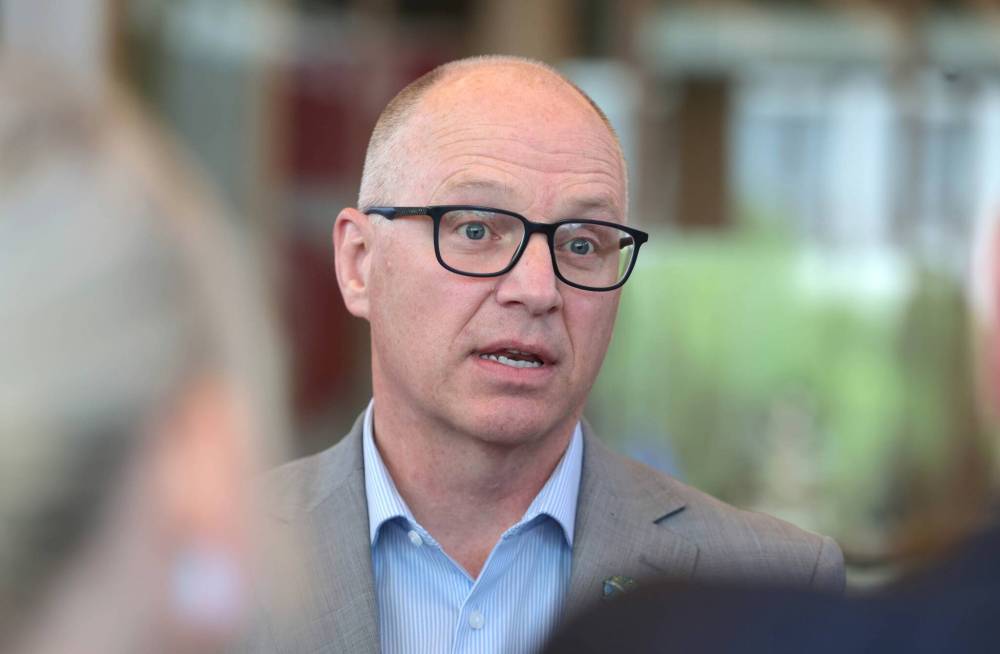The poll results are in: Winnipeg’s losing
Advertisement
Read this article for free:
or
Already have an account? Log in here »
To continue reading, please subscribe:
Monthly Digital Subscription
$0 for the first 4 weeks*
- Enjoy unlimited reading on winnipegfreepress.com
- Read the E-Edition, our digital replica newspaper
- Access News Break, our award-winning app
- Play interactive puzzles
*No charge for 4 weeks then price increases to the regular rate of $19.00 plus GST every four weeks. Offer available to new and qualified returning subscribers only. Cancel any time.
Monthly Digital Subscription
$4.75/week*
- Enjoy unlimited reading on winnipegfreepress.com
- Read the E-Edition, our digital replica newspaper
- Access News Break, our award-winning app
- Play interactive puzzles
*Billed as $19 plus GST every four weeks. Cancel any time.
To continue reading, please subscribe:
Add Free Press access to your Brandon Sun subscription for only an additional
$1 for the first 4 weeks*
*Your next subscription payment will increase by $1.00 and you will be charged $16.99 plus GST for four weeks. After four weeks, your payment will increase to $23.99 plus GST every four weeks.
Read unlimited articles for free today:
or
Already have an account? Log in here »
Hey there, time traveller!
This article was published 24/09/2024 (442 days ago), so information in it may no longer be current.
Winnipeggers are an unhappy lot, at least when it comes to civic issues such as crime, housing affordability, downtown, traffic and road conditions.
According to a Free Press-Probe Research poll conducted from Sept. 5 to 17, most Winnipeggers also don’t see things improving any time soon.
“The numbers are clear and pretty negative,” said Probe partner Curtis Brown. “Winnipeggers don’t think the city is in a good spot right now.”

Ruth Bonneville / Free Press files
Winnipeg Mayor Scott Gillingham and other civic politicians cannot fix the city’s problems alone.
The survey found 68 per cent of respondents believe buying or renting a place to live is less affordable than it was a year ago. Two-thirds said crime is getting worse, while six in 10 believe the downtown has deteriorated.
Half said the condition of Winnipeg streets and roads are worse than they were a year ago. Just over half said traffic has worsened.
For the most part, the polling results are consistent with the available data on these issues. Police-reported crime continues to rise, as it has across the country for the past several years (although it is worse in Winnipeg than in most other Canadian cities, particularly violent crime).
A new report from the Macdonald Laurier Institute found Winnipeg had the worst violent crime over the past 10 years compared with other major Canadian cities. Those findings are not surprising. However, they do reinforce Winnipeg’s longstanding struggle with troubling crime rates.
It is also not surprising that most Winnipeggers believe housing affordability has worsened. Statistics show that has been a reality across the country for the past several years.
Whether the state of Winnipeg streets is getting worse is not entirely clear from city hall data. Some of the city’s recent statistics show a slight overall improvement. However, pothole problems appear to have worsened over the past two years owing to greater precipitation and extended freeze-thaw cycles.
Traffic data on major routes compiled by city hall is also mixed. It shows the time it takes to travel from the Perimeter Highway to downtown is longer on some major routes and shorter on others.
While there is no comprehensive measurement of the quality of downtown, office vacancy rates in the core area hit a record high in Winnipeg at the end of 2023 at 18.3 per cent.
In other words, Winnipeggers’ perceptions on the five areas listed in the Probe poll are more or less in line with reality.
What may be the most concerning part of the survey is that the majority of people don’t believe Mayor Scott Gillingham and city council can do much about solving these problems.
That’s understandable to a certain extent. Crime, for example, is not easily solved. Public policy designed to reduce it — whether it’s tackling the root causes of crime like fighting poverty, addictions and mental health or beefing up law enforcement — does not typically yield results for years.
However, improving road conditions and enhancing affordable housing are more closely tied to resource allocation in budgets, something city hall has more control over.
Still, much of what civic politicians can accomplish in the coming years will depend in large part on co-operation from the provincial government. It is unlikely the city can make significant inroads on any of the issues listed in the Probe survey without greater resources from the province, particularly some share of growth revenues, such as consumption taxes.
Moreover, issues such as crime and housing affordability are provincial government jurisdictions as much as they are city ones.
Greater co-operation between the province and the city will be required in the coming years to make real progress on the five issues in the Probe poll. The city cannot do it alone.
History
Updated on Tuesday, September 24, 2024 2:29 PM CDT: Fixes typo




